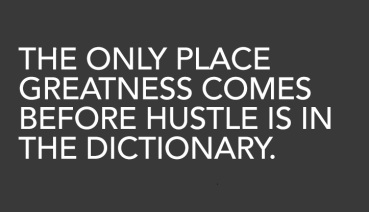I often speak to my close friends and family on the topic of career change, including the option of starting a business on the side or project while maintaining your current job. This is a strategy I advocate because it lowers the financial risk (you have money coming in from your day job), emotional risk (you try out your idea and/or interest before making too drastic a change) and transition risk (you have time to build experience and skills before migrating 100% to your side pursuit).
This strategy is not just for aspiring entrepreneurs but also for people looking for traditional employment. You can consider your job search or career change as your “side business.” People like the benefits of this strategy but have problems with execution. So this post is the first of three to answer the most popular questions I get around balancing a job and a side business. The problem with this strategy is that people like the benefits that come with it but have a problem in executing it. There are a few things you can do to balance a job and a side business that have helped me in successfully running multiple businesses and a full-time job.

The only thing that can help you to run the business and your full-time job successfully is time management. I know reading this, you are thinking, “I already don’t have enough time in a day.” I’ve found that it’s challenging for people to realize that everyone has the same number of hours in a day and days in a year. What we do with our time is what differs from those who are average and those who shine.
I’m not here to tell you that you’re not busy or that you’re not managing your time effectively. But what you should be asking yourself is how much benefit would a side business offer you. How big of an impact would an extra R1500 in your pocket a month make? What would it mean to you to have that creative freedom of making all the decisions for your business?I can’t answer these questions for you but I can tell you that for me, those answers were what forced me to do it. Managing a career along with a side hustle isn’t easy but it’s most certainly worth it. Here’s a few things that I learned along the way that will help you do it effectively:

Don’t Feel Guilty. You’re in Control
The number one thing I see holding smart and ambitious people back are the stories they tell themselves that are built on a foundation of guilt. Too many people feel guilty about spending time building businesses in the evenings and weekends instead of focusing on their 9 to 5’s. It’s as if they feel guilty for taking control of their own destiny, their own life and their own career. Sadly, this is the kind of thinking that stifles professional and personal growth.
Block out time for your business
If your job takes 40 hours per week (or 50+ when you factor in lunch and commuting) you’ll have to set up specific times to work on your business. You might block out 3-4 hours per day, with one or two hours early in the morning before work, two or three in the evening, then more on the weekends. Businesses require time and effort to build so you’ll have to be very disciplined in making the time that will be needed.
Commit to Self-Awareness & Self-Development
It’s important to know what you can do and what you cannot. It’s also important to commit to being aware of your own actions and how they’re impacting those around you. This includes your actions at your 9 to 5 along with the actions outside of your day job.
It’s important to spend time reflecting on what you need to improve and putting in the effort to improve those areas of weakness. You need to commit yourself to learning new things and gaining new information that can help you and your business move forward. Additionally, it’s also important to be aware of how these new skills are translating into your existing career as they could be leveraged for that raise or promotion you’ve been waiting for.
Talk Less. Listen More
The more you listen to your customers, employers, and colleagues, the more you will learn about them and their own insecurities & desires. You will be able to better understand if your boss is okay with you having a side hustle and determine early on, whether it’s time to start looking for a new job to begin with. Beyond listening to your employer more, there’s a true benefit in listening to your customers. It’s your customers who will help ensure that your business is alive and it’s them who will give you unfiltered opinions.
When it’s finally time to leave—don’t burn your bridges
When that blessed day comes that you can finally leave your job to make your business your full-time occupation, be sure to handle your exit gracefully. None of us know what life holds, so it’s best to assume that you may need a reference or even your old job back at some point in the future. Keep your departure friendly and cooperative, and do what you need to to keep the door open. Ultimately, the ability to balance a new business with a job may come down to the type of business you’re looking to start more than anything else. Some businesses are easier to start and even maintain with a full-time job than others.
